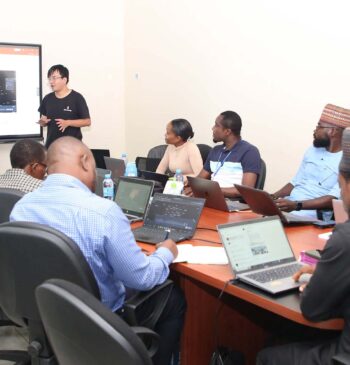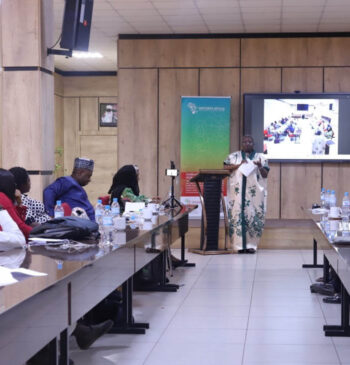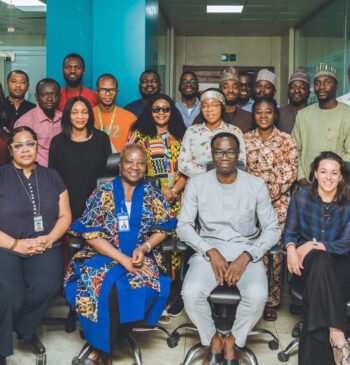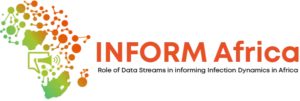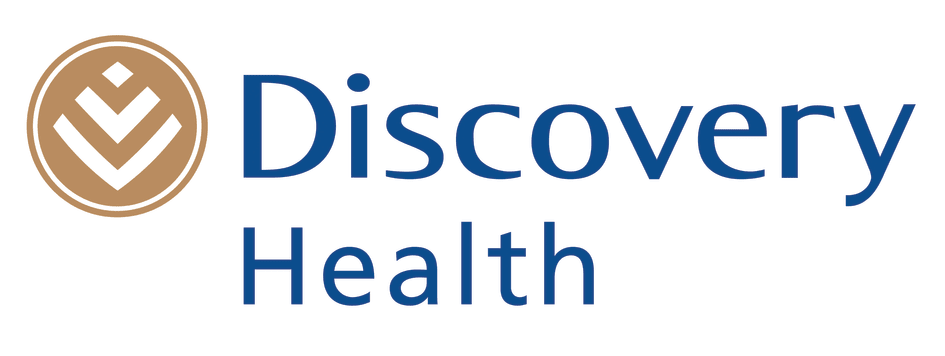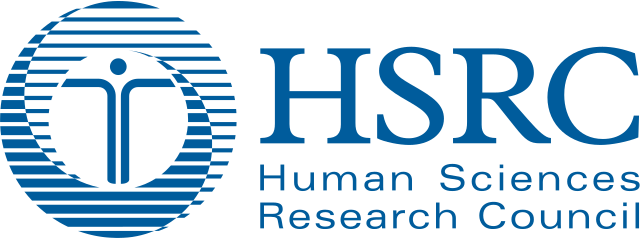HIGHLIGHTS FROM THE DSI-AFRICA NETWORKING
EXCHANGE MEETING, 24th APRIL 2024
The DSI-A Africa networking exchange meeting offers an informal opportunity to meet with organizations, individuals and institutions to learn more about data science and health activities, with the prospect of partnerships and collaborations. The 2024 networking exchange meeting was attended by approximately 200 participants.
The DSI-Africa Coordinating Centre (DSI-ACC) provided an overview of the consortium, highlighting the 18 funding institutions from the NIH that support the 38 projects across 21 African countries, which cover various health systems. The major deliverables of the consortium include, identifying centres of excellence in data science and innovation, advancing polices around ethical issues of data science, development of products and solutions and promoting interdisciplinary collaborations across the continent.
The DSI-Africa is structured with two pivotal pillars of support, the DSI-A CC that supports common activities between all projects, and the eLwazi ODSP CC, the pillar that supports all aspects of the consortium related to big data. It comprises of what is referred to as the “ELSI” projects, which is essentially a coalition of projects that focus on legislation and bioethics around big data, and guide the entire consortium on the responsible use of data, as well as seven multidisciplinary research hubs addressing critical health issues, while collaborating closely with African governments. Additionally, there are 13 smaller research projects focusing on niche research questions.
The consortium also comprises seven research training hubs dedicated to enhancing the capacity of faculties to train the next generation of African scientists and researchers, along with six research education projects. The activities and progress of the DSI-Africa ecosystem are closely monitored by the leadership of the steering committee, while four working groups provide a platform for integrating projects within the consortium and engaging external collaborators with overlapping focus and objectives.
This year’s theme focuses on expanding the consortium’s collaborations to non-academic institutions and organizations. The networking exchange featured several rooms during the three networking rounds, each dedicated to different themes: Health Research Centers I, II, III, and IV; NGO/Non-profit; Private Sector; Global Network; Consulting Services; and Open Science Network. Participants reconvened to listen to several funding agencies discuss opportunities for funding grants, including the do’s and dot’s for successful applications.
FUNDING OPPORTUNITIES
Wellcome Trust The Wellcome, a UK-based organization, focuses on funding research with potential of improving health and well-being. The Wellcome funding programme has four (4) thematic areas including; Discovery research (supports diverse research focus linked to health and well-being), Mental Health, Infectious Diseases and Climate and Health. Currently, the discovery funding scheme is awarding grants to early career researchers, mid-career researchers with potential of international impact, and seasoned researchers and labs. These opportunities are usually open 3 times a year. The mental health funding provides researchers with funding opportunities to drive early interventions in anxiety, depression and psychosis. Wellcome has two schemes under this umbrella; the mental health data prize Africa and leveraging Neuroscience to illuminate mental health issues. The infectious diseases funding scheme supports research geared towards reducing risk and impact of escalating infectious diseases in the most affected regions. Wellcome currently has a funding opening on understanding Dengue and Zika spread, immunity and clinical outcomes.
The climate and health scheme focuses on funding research that puts health at the heart of change action. Wellcome’s next funding scheme in this area is in Spring of 2025.
LACUNA FUND-focuses on funding research gaps that provide missing pieces of health datasets that inform the utility of Artificial intelligence for addressing healthcare issues in communities. To achieve this, the Lacuna fund receives funding from several global funders like wellcome, google, the Rockefeller to name a few. The primary focus of Lacuna fund is funding Machine learning Datasets across different disciplinary domains. It’s upcoming 2024 funding is on antimicrobial Resistance in partnership with the African centre for technology studies.
IDRC-CRDI– The International Development Research Centre, a Canadian Crown Corporation, funds research in development on several issues. Currently, it has a 10 year strategy, that allows for sustaining projects long enough to measure desirable outputs/outcomes.
NATIONAL INSTITUTE OF HEALTH/NATIONAL INSTITUTE OF BIOMEDICAL IMAGING AND BIOENGINEERING (NIH/NIBIB)-The NIH is part of the US department of health and human services. It is comprised of 27 institutes and centres with specific charters aimed at promoting healthcare research with a current funding pool of 42.5 Billion USD. The NIBIB as an NIH institute, focuses on supporting technological advancements to enhance the understanding of diseases, as well as prevent and detect, and treatment of diseases. To explore current available funding schemes under the NIH, follow the link; https://www.nih.gov/grants-funding
STRATEGIES FOR FUNDING IMPACTFUL RESEARCH/PROGRAMMES WITH IMPLEMENTAION AND SUSTENEACE VIABILITY FOR AFRICAN COUNTRIES
For strategic funding of partnerships and “buy-in” of African governments, funders encourage partnerships with research institutes/projects with relevant government actors at the proposal design level of research projects. Currently, funders insist that policymakers around the thematic area of the research focus must be involved from the conceptualization stage of the research project.
BREAKOUT ROOMS
ROOM: Health Research centres
Organisation: National Institute for Biomedical Research (INRB)
Presenter: Lyaki Ndukukwa Jacob
INRB is a multidisciplinary institution established for the identification, treatment and prevention of diseases in the DRC. INRB is a WHO collaborating centre. It comprises of virology, pathology, clinical biology, medical entomology, epidemiology and pathogen genomic labs, as well as parasitology labs. It also has animal research and data science centers. About data science, INRB is involved in exploratory data analysis, statistical analysis and machine learning and modelling. The data science centre at INRB currently has a 150TB capacity, with over 100 GB genomic data. Considering that the DRC where INRB is domiciled, is a country with emergence, re-emergence and endemic disease, it presents nascent opportunities for developing biomolecular surveillance tools and other forms of data science models. INRB is seeking to develop collaborative partnerships with research projects with data science and ethics competence within the DSi Africa consortium and other institutions working in related spheres. To read more about INRB DRC, please follow the link; https://inrb.net/
ROOM: Health Research centres II
Organisation: Institute of Human Virology-International Research Centre of Excellence (IHVN-IRCE)
Presenter: Dr. Nifarta Andrew
IHVN is a centre for research excellence and health service implementation. In its programmes, it utilizes innovative and evidence-based implementation strategies that prioritizes the end beneficiaries (individuals and communities). It is structurally composed of a treatment program, implementation unit and an international research centre of excellence (IRCE). The institute comprises of several research and clinical laboratories that include; a biorepository/sample processing unit, a genomics lab as well as, clinical pathology, vaccinology/immunology, chemistry/hematology/microbiology and molecular diagnostics labs. In the context of data science, COVID 19 exposed myriad nascent opportunities for IRCE to embark on several projects that seek to strengthen capabilities for disease control, including monitoring and response. Some notable projects that emerged from thes opportunities include, the development of interactive analytical dashboard that pulls surveillance data for multiple diseases and systems for analytics on wallboards, the development of a triangulation tool that works with Adverse effects following immunization (AEFI) data following COVID 19 vaccination and immunization data from 3 different platforms hosted by government of Nigeria agencies, development of methodologies to harness huge program data and remnant samples for serological surveillance for COVID 19, as well as a project that has developed of methodologies to define the burden of acute febrile pathogens to guide decision making and policies for routine surveillance. Collaboration with the centre presents opportunity to access high quality multicenter big data for research and analysis, joint grant funding and publications and capacity building, as well as a biorepository. For further information on how to collaborate with the institution follow the link https://ihvnigeria.org/
Organisation: AKROS
Presenter: Dr. Anna Winters
AKROS is a multinational organization that brings together the insight of data science to practice, especially in supporting government policies. AKROS has worked in the areas of malaria, water and sanitation, alongside vaccination, and other tropical diseases. It has built simple to use technological tools (dashboards) using data science as a vehicle to address healthcare challenges around diarrheal disease. AKROS also works towards reaching “last mile” with health services by mapping populations, using satellite imagery (geospatial data), building digital tools in order to plan and deliver health services. This has allowed AKROS to assist many countries in planning and deploying health campaigns to “last mile”. AKROS has built an open-source tool called REVEAL. This tool supports the planning, guiding tracking and delivering of health services to the “last mile”. AKROS has been able to assess the impact of linking geospatial tools, data science and operations, as observed in the increase of health campaign coverage, reduction in disease burden and reduction in cost per malaria case. AKROS works within the DSI-Africa consortium under the INFORMA Africa project, where the REVEAL platform is currently being utilized. It is currently engaging with some interesting questions like; Can we combine geospatial mapping with genomic data to better equip routine surveillance systems? Can we put the power of geospatial climatological risk models in the hands of local practitioners to target health interventions? To learn more AKROS, follow the link to AKROS site https://akros.com/
ROOM: Health Research centres III
Organisation: The African Population and Health Research Center (APHRC)
Presenter: Bylhah Magotitsa
APHRC is an institution that seeks to bridge research and policy gaps using evidence-based approaches and an advancing research and development ecosystem. APHRC strives to inform actionable strategies that positively impact health and development across the continent. In the context of the DSI-Africa networking exchange meeting, the APHRC comprises of several data science program working groups, that builds common data models, develops No-code platforms, installs OHDSIonAWS and the installation of research infrastructures. It has also robust data governance and sharing units which promotes open science. Data science also works with several selected HDSS data (e.g verbal autopsy, mental health) sites across Africa. The data science platform at APHRC has led the development and modification of African based vocabulary for data harmonization, standardization and analysis. The data science working groups also boast of a unit that focuses on the development of dynamic and stochastic models via big data analytics. APHRC is currently working on a major mental health project from a data science standpoint via a welcome trust funding. APHRC believes it can offer opportunities for collaborations in the following areas; the expansion of data collection and prototype development, policy impact, data harmonization, data. FAIRefication and the use of ML/AI tools. To find more details on opportunities for collaborations and partnerships, read more about APHRC via the link. https://aphrc.org/
Africa research institute for AI (ARIFA) is a non-profit organization based in Tanzania. It was established to monitor, assess, broadcast IT and AI advancement globally in order to inform African based policies. It also fosters collaborative research and networking between experts in the field of AI and IT across sub-Saharan Africa (SSA), while advocating for the adaptation of AI and its responsible use with the SSA development systems. ARIFA is currently undertaking on a social media data mining project to develop public health surveillance systems. This project entails topic analysis, sentiment analysis and forecast disease outbreaks. Find out more about the interesting work ARIFA is up to via the link. https://arifa.org/
ROOM: HEALTH RESEARCH CENTRES IV
National Authority for remote sensing and space science (NARSS)
Presenter: Prof. Rania Elsayed Ibrahim
NARSS is a research institute in Egypt that focuses on the application of space technology to regional and global market, in earth observations and space sciences. Its thematic areas range rom agriculture to geology and mineral resources, aviation, data analysis and modelling as well as training and capacity building. The institute also focuses on harnessing geoinformatics in monitoring disease spread, mapping vulnerable populations and identifying gaps to inform government policies for betterment of health outcomes.Its current projects include; a study on the impact of climate change on the distribution of mosquitoes, a study on the environmental factors that control the spread of disease vectors and the study of the impact of air pollution and dust storms on human health. The institute also boasts of a virtual reality lab for medical education, three (3) remote sensing satellites, two (2) receiving stations, Hypsex Pushbroom scanner and a beach craft super king 200 alongside modern in-situ technologies as part of its institutional resources that allow it function successfully across different disciplines. NARSS is open to partnerships in research, training and capacity building around its thematic areas. Read more on NARSS https://www.narss.sci.eg/
This is an African for Africans effort to build a Pan-African data science platform with major themes around policy, infrastructure, data, access, skills, incentives and partnerships. AOSP tries to put the African society in all of its initiatives, especially communicating research outcomes to communities. Member states of the AOSP are encouraged to invest in infrastructure, enable favorable policy environments, promote the understanding and benefits of open science and the benefits of co-operation. The AOSP resources currently include open science resources, data intensive science outcomes, cutting edge support (data science and AI institute) and essential infrastructures like cloud computing and data management tools. Its ultimate goal is to convene and coordinate the many fragmented resources, interests, ideas, people, and institutions for advancing the open science narrative for Africans, and having the capacity to plug in to Global Open science Platform. Among the myriad benefits of partnering with AOSP, includes the development and implementation of National (country) policy frameworks for open science, institutional partnerships and partnerships at the level of researchers and impact of funding for donors. AOSP is currently hosted by National Research Foundation (NRF), and is open to partnerships and collaborations.Read more about the interesting work at AOSP https://aosp.org.za/
The Gen3 is built and maintained by the centre for translation of data science, housed in the university of Chicago. Gen 3 develops and operates large scale data platforms to support research in topics of societal interest. It is built around the concept of data commons, a cyberinfrastructure that co-locates data storage, management and computing infrastructure. Its goal is to curate a fair open-source data environment. Gen3 currently provides microservices that perform some basic functionality, including metadata import and export, data file upload and download using permanent digital IDs, query of metadata and files using graphQL. Follow the link to learn more about Gen3 https://ctds.uchicago.edu/gen3
ROOM: GOLBAL NETWORKS
Organization: AFREHEALTH
AFREHEALTH is a pan-African network of diverse health professionals and institutions that focuses on education and health research to influence health services (outcome) in Africa. It was established in 2016 and situated in Kumasi, Ghana. It was initially instituted as a PEPFAR funded education partnership initiative (MEPI) and the Nursing education partnership initiative (NEPI). It has diverse representation across the entire continent with the exception of North Africa, thus, opening up novel opportunities for partnerships and collaborations from that region. It currently a continental wide research project; that covers 12 member countries on vaccine effectiveness as well as a project that assess the impact of COVID on pregnant women and pediatrics. It has also, several capacity building programmes on data science and how to utilize big data (via projects supported by the African CDC, Mastercard foundation, IDI in collaboration with National public health institutions in the respective countries). This is also part of its efforts towards pandemic preparedness. Its annual symposium comes up on the 6th august, 2024, a forum for networking and sharing of ideas.
The National academies of sciences of Science, Engineering and Medicine were established to provide expert advice to the government. While it works closely with the government, it functions with autonomy to advocate for scientific advancement globally, especially on the use of data to drive decision making. The US-Africa frontiers is a program of the National academies initiated to foster collaborations for a paradigms shift to problem solving with a multidisciplinary approach. Its symposiums which serve as platform to facilitate these dialogues, stretches across different plenary themes like Artificial intelligence, Materials science, Climate change, infectious diseases, one health, sensing technologies , vaccine manufacturing and biodiversity (to name a few). The criteria for participation in these symposiums insist on being a frontier and a leading expert in a discipline. Funding is made available for selected participants who are selected to join these discourses. Follow link to read more about US-Africa frontiers and its opportunities. https://www.nationalacademies.org/our-work/us-africa-frontiers-of-science-engineering-and-medicine
ROOM: PRIVATE SECTOR
Organization: BRAIN “where will yours take you”
Presenter: Lillian Prince
A US non-profit organization initiated to increase minority groups representation to STEM and healthcare science fields, mainly biostatistics and data science. BRAIN offers youth and fresh energy to its prospective collaborators; and can assist with research projects, grant writing and other resources (equipment’s and medical supplies). BRAIN hopes to expand its African networks while bring to its American students, cultural competence. BRAIN is interested in having competent individuals with shared interests and values join its board. Read more on BRAIN via the following link, https://www.brainprogram.org/
Histofi uses data to benefit commercial health programmes, with operational focus in developing countries. The platform is a data driven foundation that provides useful tools on all forms of cancers, for early detection, improved diagnostic accuracy and delivery of personalized care. The platform features multiple models of data capturing tools that are AI enabled. Histofi is open to partnerships with cancer centres, research and diagnostic laboratories and clinicians looking to enhance cancer care. Ultimately, the goal is to create digital biomarkers for more accurate predictions of cancer. Follow link to read up more on the Histofi platform and mission https://histofi.com/
ROOM: CONSULTING SERVICES
Organisation: InSight health Consulting
Presenter: Tochukwu Osuji
InSiGHT Health Consulting is a renowned public health consulting firm based in Nigeria, established in 2004 with nearly two decades of experience in the public health and development sector, with a mission to catalyze positive and sustainable health outcomes in Africa by providing services in health systems strengthening, healthcare quality management, research, and general project management. Research is a core competence for InSight, encompassing formative studies, monitoring and evaluation, and implementation research to inform project planning and improve interventions. Over the years, InSiGHT has collaborated with esteemed clients like Shell Petroleum, Plan International, pharmacists Foundation, and the likes. The InSight team comprises of an advisory committee and operate from offices in Lagos and Abuja, covering the southern and northern regions of Nigeria, respectively. InSiGHT seeks to secure more funding opportunities, expand professional networks, and venture into new regions across Africa and beyond. InSiGHT is open to collaborations/partnerships, follow link to find out more about this consulting firm.https://www.insighthc.org/
The Engagement Manager at the Regional Centre for Mapping and Resource Development in Nairobi, presented insights on the consulting aspects of data science and health, aligning with SDG 3 (human well-being) and SDG 6 (clean water). The center provides expertise in using elevation data, remote sensing, GIS, and other tools to address water, agriculture, land, and health-related challenges in Africa, where the population exceeds 1.4 billion.
Key focus areas include policy formulation, capacity development, and suitability mapping to improve access to health centers and enhance quality of life. The center also supports initiatives to address air and water quality issues, partnering with government ministries and other stakeholders. Additionally, it places emphasis on data acquisition, processing, and analysis to generate insights for decision-making and integration with existing systems. Currently, the center supports 20 countries in Eastern and Southern Africa, providing vital information to advance sustainable development goals.
ROOM: NGOS/NON-PROFIT
Organisation: Tanzania Health Promotion Support (THPS)
Presenter: Elia Daud
THPS is funded by PEPFAR with primary focus on public health initiatives. It’s current areas of focus in the field of data science include, Data Curation and Management, Data Analysis and Interpretation, Healthcare planning and resource allocation, Disease surveillance and warning systems as well as Capacity building in data science application. THPS is open to collaborations with research institutes and projects with overlapping thematic focus. Collaborative initiatives with THPS present opportunities and access to communities, Infrastructure and logistics support, Policy advocacy Strategies and Data collection and Management. Follow the link to read more on THPS https://thps.or.tz/
Organisation: Management and Development for Health (MDH)
Presenter: Wilhellmuss Mauka
MDH is an indigenous NGO founded in 2009 with significant coverage in all regions in Tanzania. MDH’s is invested in the research of communicable and chronic non-communicable diseases, as well as in the implementation and evaluation of programs. It currently seeks to improve HIV/TB morbidity and mortality, maternal, newborn and child health, food security, HSS, health information and research for policy and decision making. Presently, some key strategic program areas of MDH include; Implement a comprehensive HF-based HIV and TB Care – at facility and community settings, Implement Lab Quality Management Systems, Health Systems Strengthening, Support systems to inform planning and improve data quality and service delivery. MDH is seeking collaborators with competence in analyzing their big data sets they have been collecting since 2010, enhanced efficiency and effectiveness in program implementation, innovative solutions and technologies, access to funding and resources and Opportunities to expand their portfolio and improve implementation. Visit The MDH site to read more areas of collaborations or partnerships. https://mdh.or.tz/about-mdh/
